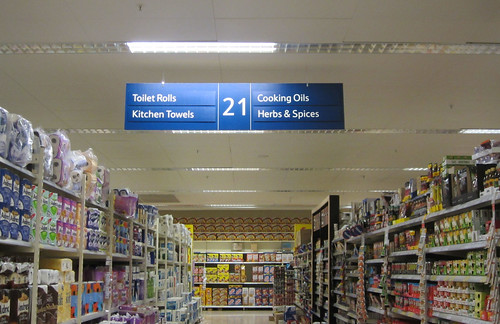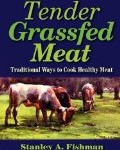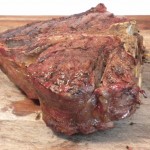Food Freedom Requires Good Labeling
By Stanley A. Fishman, author of Tender Grassfed Meat and Tender Grassfed Barbecue

 photo credit: Danny Nicholson  We have a right to know what is in all food.
photo credit: Danny Nicholson  We have a right to know what is in all food.
I consider the freedom to choose what we eat to be one of the most crucial human rights. Nothing affects us more than what we eat. If people do not eat what they need, and enough of it, they sicken and die.
The converse is also true—if we eat what we need, and enough of it, we are usually healthy. And there is nothing more important to a person than their actual health. Every person is different, and their needs change from day to day. We must be able to choose what we put into our bodies. But we cannot really choose what to eat, and what to avoid, if we do not know what is in the food, and how it was raised.
Since modern food contains many hidden ingredients and processes, the only way we can make an informed choice is if we know what is in the food, and how it was raised.
We need full and complete labeling.
The Modern Problem of Hidden Ingredients
The need to make a wise choice about what to eat is crucial, perhaps the most important decision, and one most of us make every single day. What we eat, and what we do not eat, has a huge impact on our health, mental attitude, energy, ability to do things, and our very survival.
In the past, the choice was not hard. There was a great deal of traditional knowledge about what foods were needed, and how a particular food could help a particular problem. Foods were unmodified and pure, for the most part.
That is not the case today. Most food is processed, raised in ways that violate the very laws of nature. Most food has many chemical additives. Even raw foods like meat and vegetables are often tainted with chemicals such as pesticides, growth hormones, and chemical cleansers such as bleach. Many animals are fed feed that was never part of their natural diet. Many plants are grown on depleted soil with the use of chemical fertilizers, and lack needed nutrients.
Without labeling, or actually knowing the details of what is in the food and how it has been raised, it is impossible to know what you are actually putting into your body.
The Labeling We Need
We do have some labeling and disclosure, but it is far from perfect. Many additives are not labeled, and the pesticides and chemicals used to grow and process the food usually never are on the label.
We need to have full disclosure of everything that is added to every food. We need to have full disclosure of how the food was raised. If we eat meat, we need to know what the animal was fed, where it was raised, and what has been added to the meat. If we eat vegetables, we need to know where they were grown, and what chemicals were used in the process. If we eat anything, we need to know how it has been processed. If something is genetically modified, we need to know it. Only then will we actually know what we are eating.
The food industry would greatly object to this kind of labeling, claiming it is too burdensome and expensive. I have heard one scientist say so many substances are used that there would not be enough room to put them on any label.
I do not believe the claim that full labeling and disclosure is too burdensome and expensive. Many other nations have much more extensive labeling requirements than the U.S.
As for the claim that there is no room on the label, my solution is to use less chemicals. Most of these unlabeled substances are chemical additives, which are there only to increase the profitability of the product. I submit that the freedom to know what we are eating is much more important than the profits of a greedy corporation that feels a need to hide what it adds to the food. We need good, real food, not chemical additives.
Given the current degree of control the biotech and food industries have over government in the U.S., such labeling is not likely at this time. But that does not mean we do not need it.
In the meantime, I learn all I can about what I eat, and refuse to eat those things that do not meet my standards of being naturally raised, and low in toxins.
This post is part of Fat Tuesday, Real Food Wednesday and Fight Back Friday blog carnivals.


 Photos of recipes from the new book Tender Grassfed Barbecue
Photos of recipes from the new book Tender Grassfed Barbecue
 Photos of recipes from the cookbook Tender Grassfed Meat
Photos of recipes from the cookbook Tender Grassfed Meat